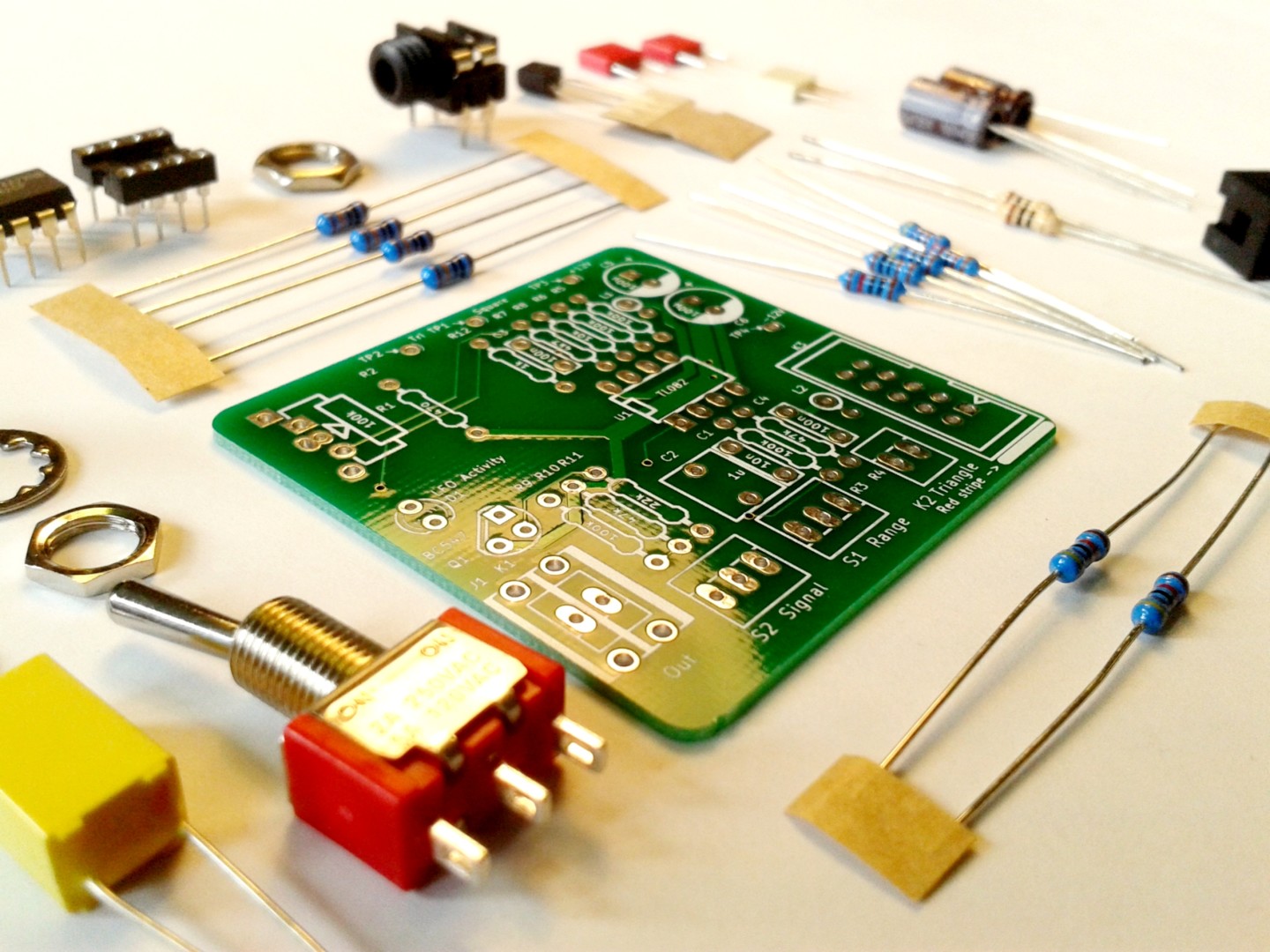
A small kit is available for purchase! Check the “shop” page.
Continue reading Simple LFO Kit

A small kit is available for purchase! Check the “shop” page.
Continue reading Simple LFO Kit
I was testing one of my projects and was annoyed by a lot of noise at the output on the last stage Op-Amp. What was wrong?
While I’m still designing my DS8 drum clone, I’m preparing some new modules. In fact, they are designed as build bricks for the drum module.
I made a simple square and triangle LFO, a simple AR Envelope Generator and a 3 way mono mixer.
In the meanwhile, I tried for the very first time the Front Panel Express service (Schaeffer AG actually here in Europe), and I just received my first panels yesterday.
I have to say 2 things: first, their service is not cheap at all. But, wow! I’m really happy with the result! What a nice and professional result! Check it out:
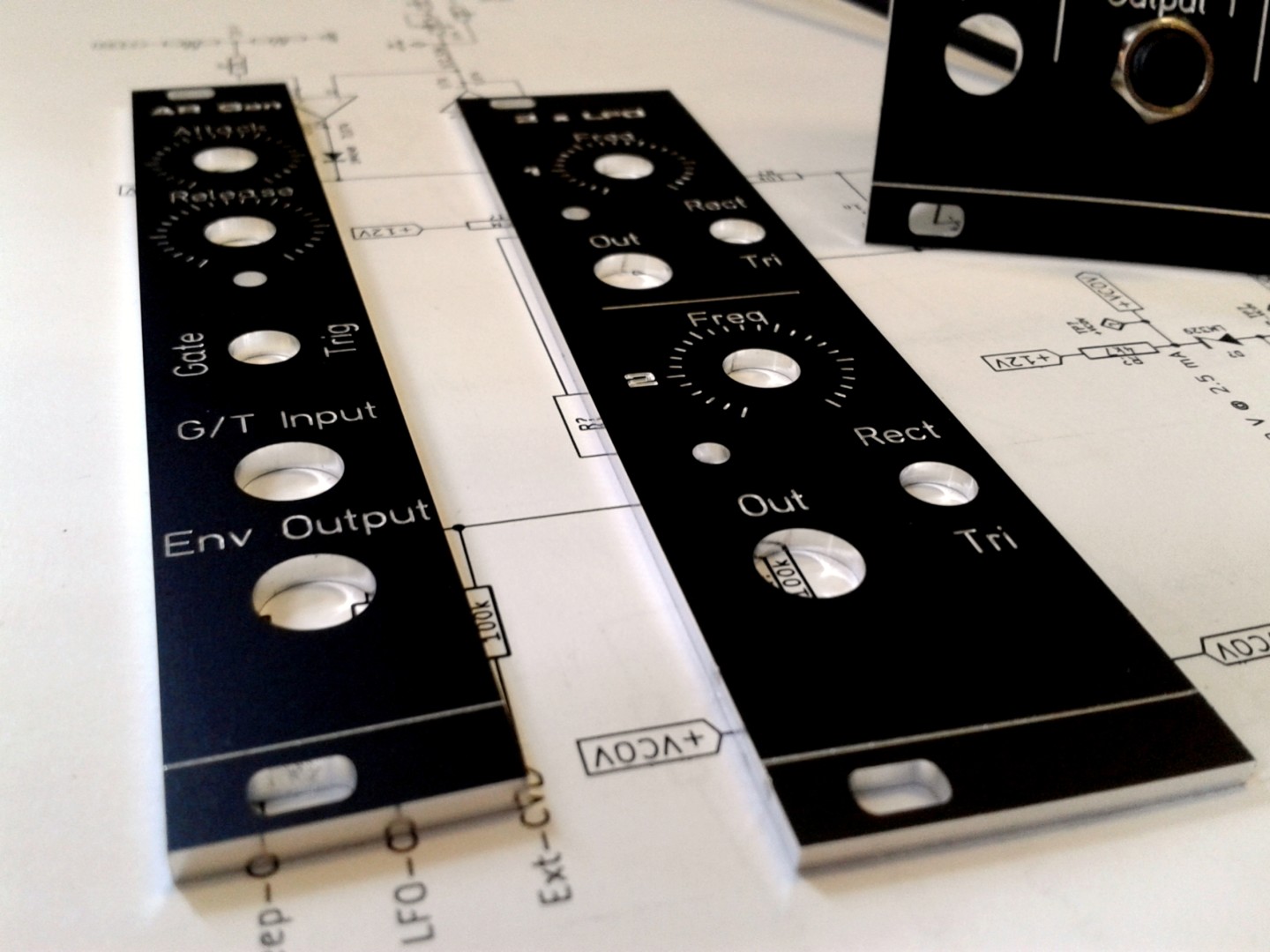
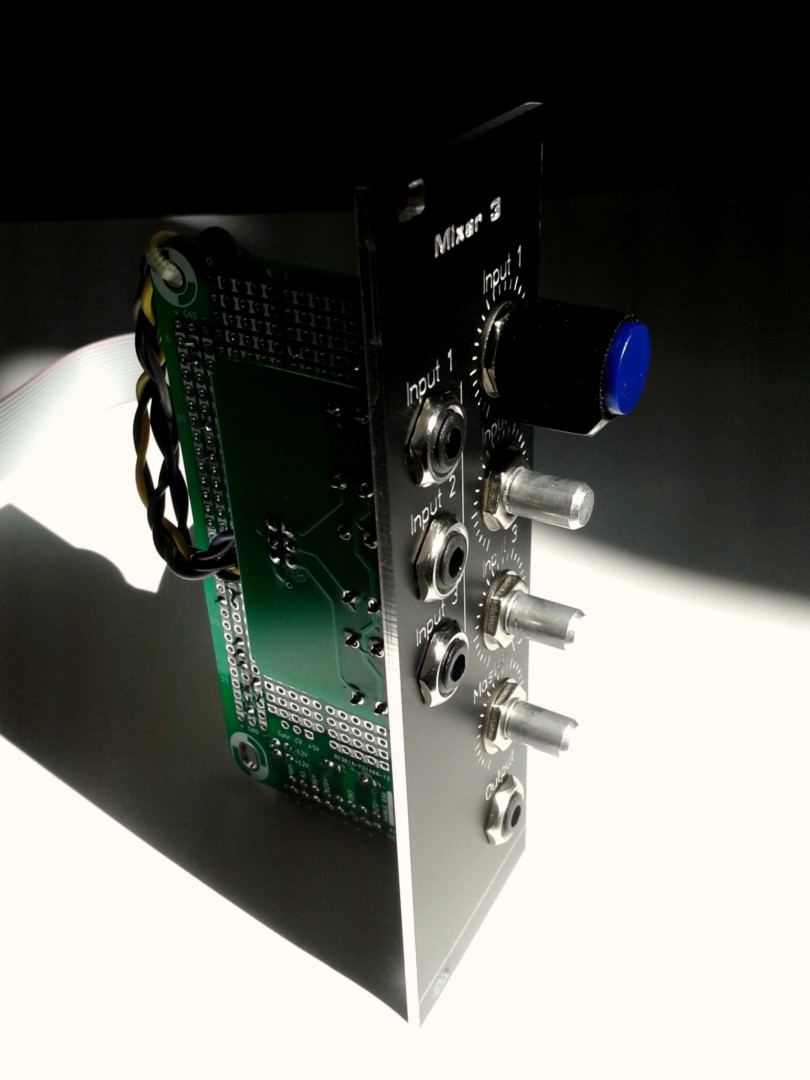
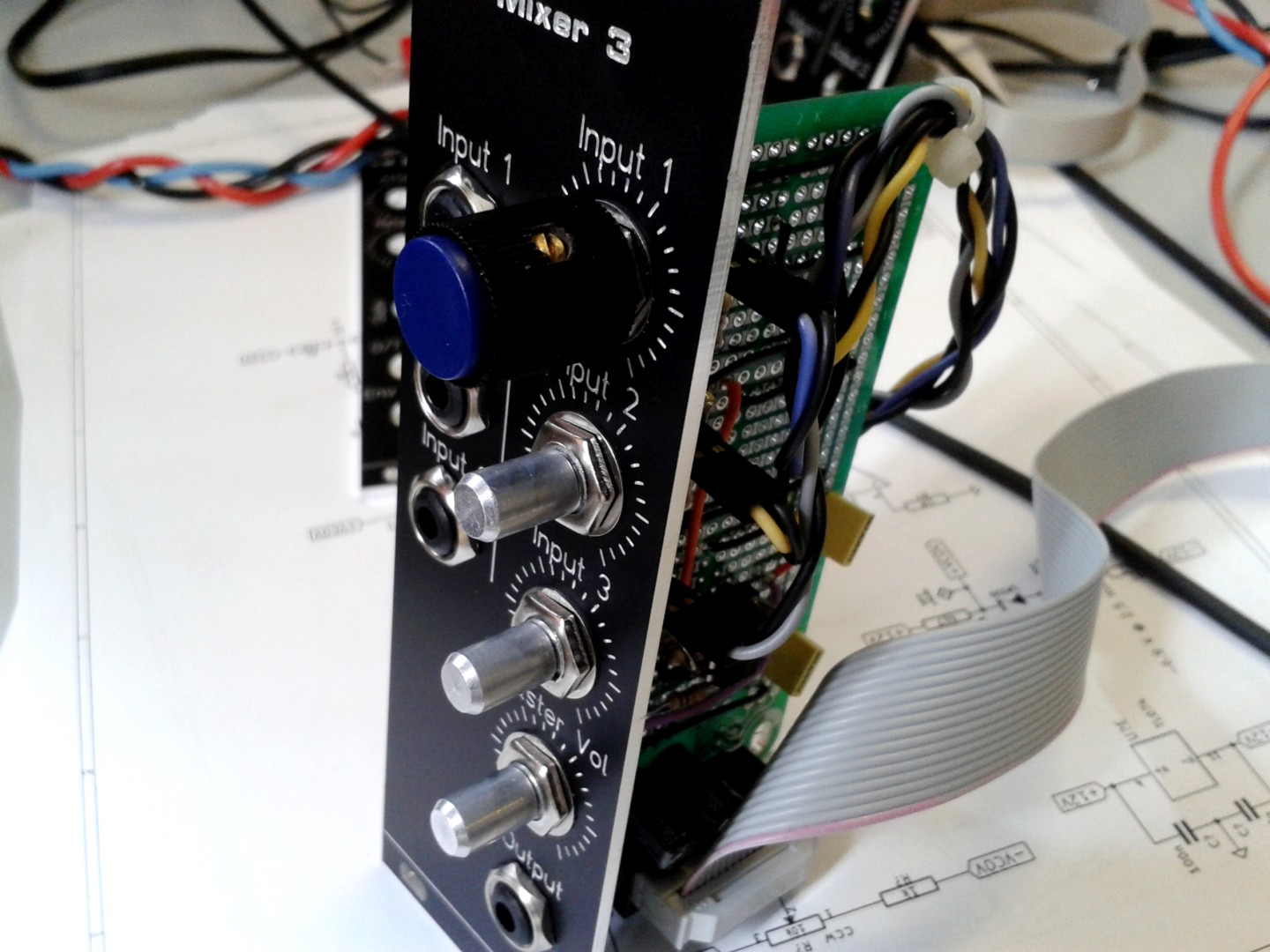
It’s absolutely brilliant! If it wasn’t the price, I would definitely recommend their service!
They are 2mm thick black anodised aluminium panels. Texts and drawings are raw cuts with no white infills. Still, the result is very good: it’s perfectly readable.
Edges can be a bit rough though. Anodised aluminium doesn’t catch finger prints. (PMA glass does it a lot!) At 2mm thick, the panels are really stiff. Surface is pretty hard to scratch.
All in all, I’m very pleased.
If everything goes nicely, I will build several of these and sell ’em as separate simple modules. Keep in touch!
Next to come are an impact gen (actually a clone of a 606 bass drum), and probably the noise generator.
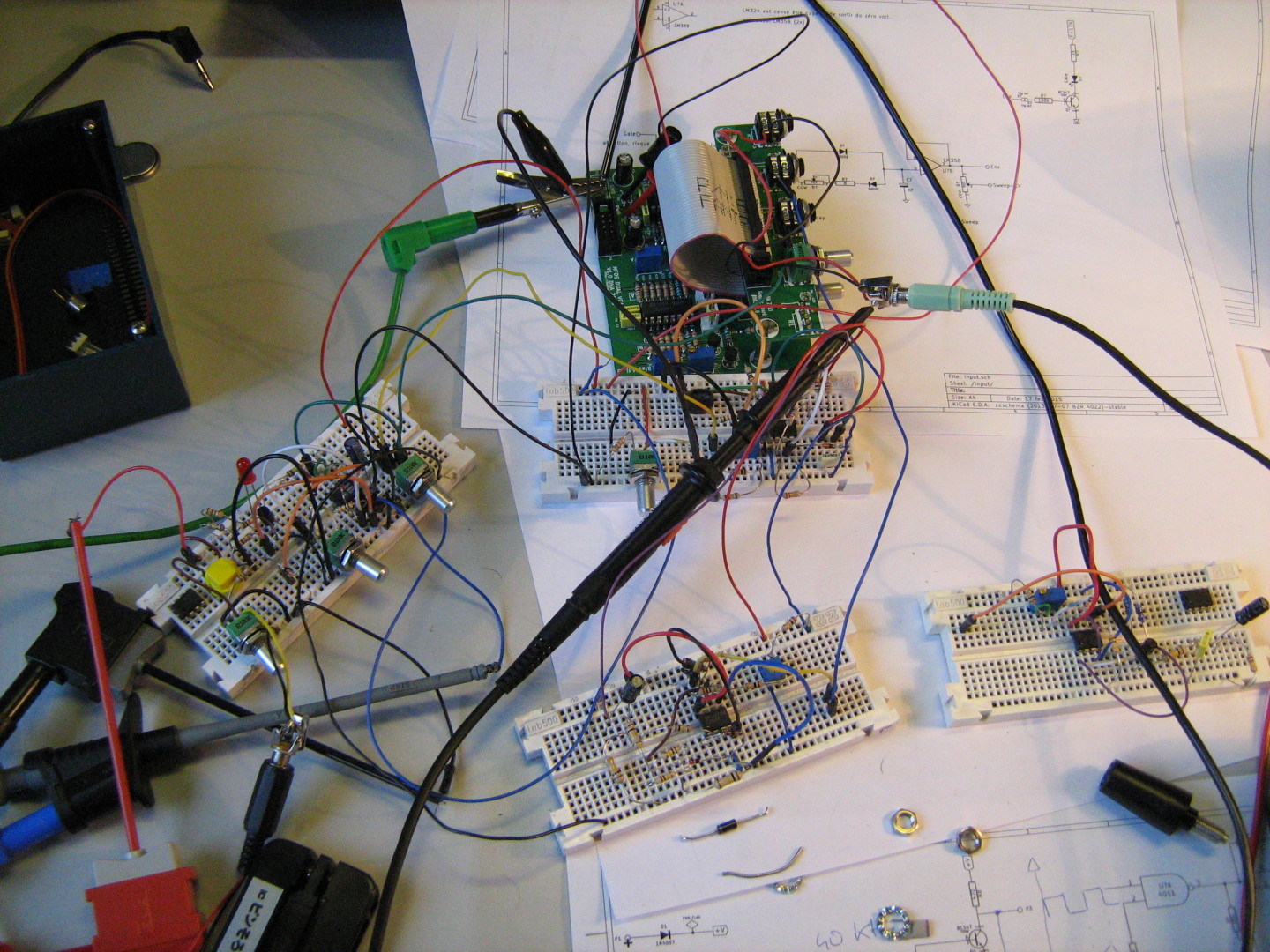
I’m still working on my DS8 Clone. I made 2 previous versions, but I’m not satisfied enough. The fact is DS7 or DS8 drums and their “clones” suffer from the original design flaws. All those clones are copies from the original model, with some additions. But they inherit the poor quality design. To mention a few, the low amplitude output, the poor noise source, the linear release enveloppe shape, the lack of punch on attack, the lack of 1 V/Oct tracking… And it’s not easy to debug.
So, I decided to completely redesign the guts of my next Drum Synth. Same behaviour, better characteristics.
Continue reading My new DS8 Clone isn’t ready yet, but…
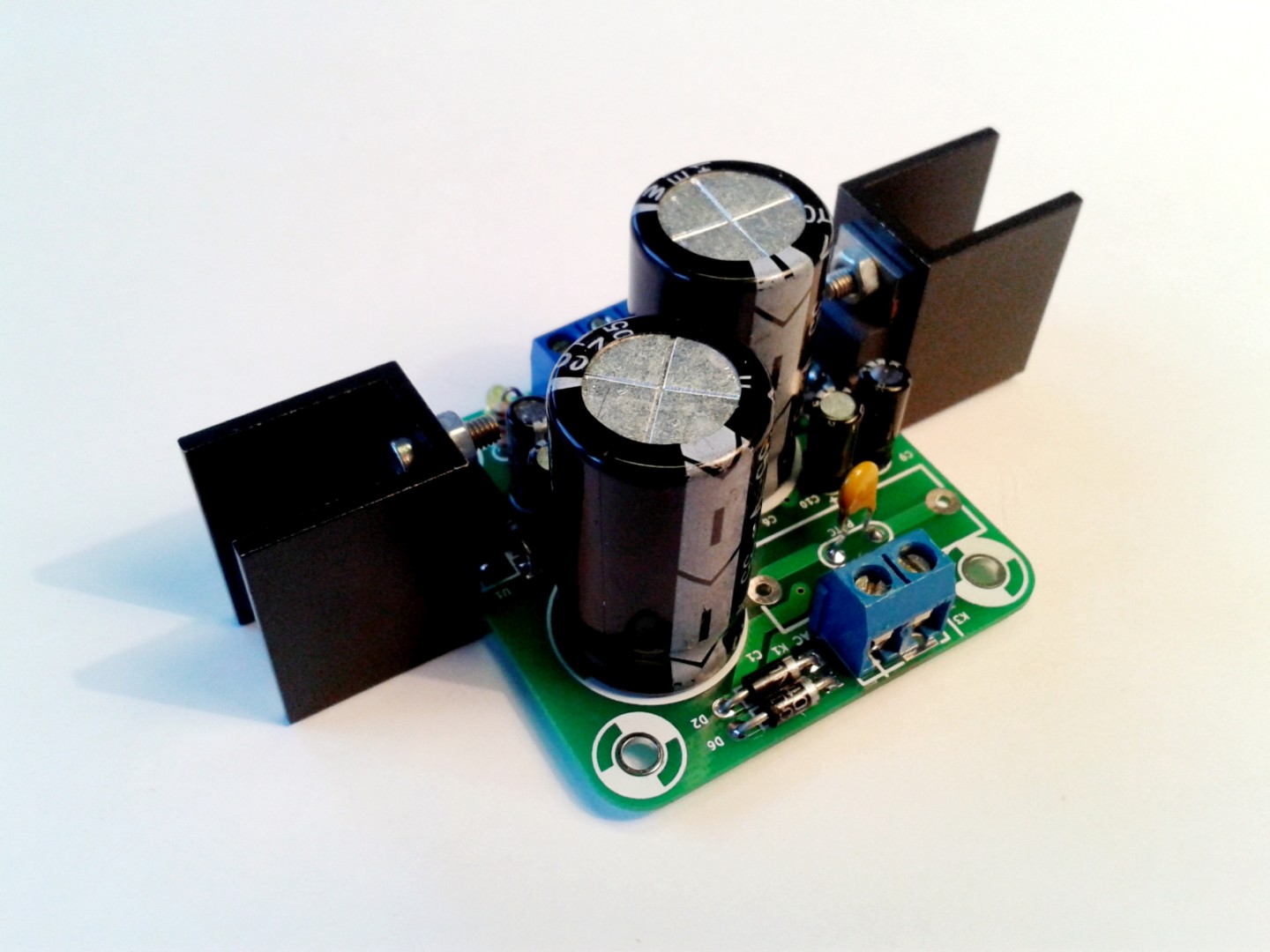
Here comes the next 2015 circuit update: Mini Dual Power Supply version 2.1!
Continue reading Mini Dual Power Supply – Update to 2.1
A quick update on the Prototyping Board #1.
Prototyping Board #1, also known as “Breadboard PCB” has evolved to version 1.1. Same concept, small improvements, better usability!
Continue reading Prototyping Board #1 – 1.1 Update
8 x Eurorack Power Connectors in a very compact (100 x 50 mm) board.
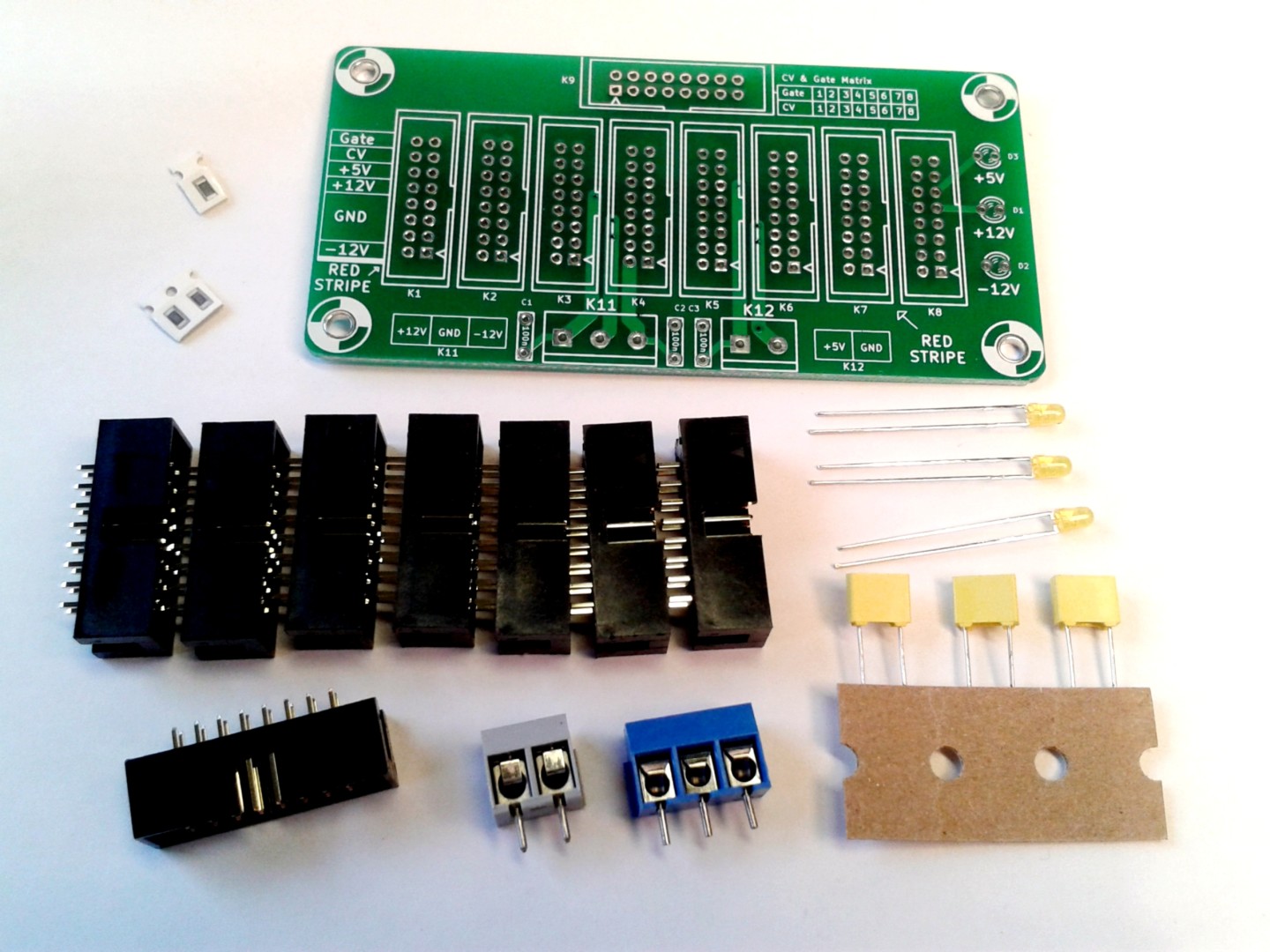
Step by step assembling guide for the Mini Dual Power Supply. Please read all the step at least once before starting assembling.
Continue reading Mini Dual Power Supply: Assembling it
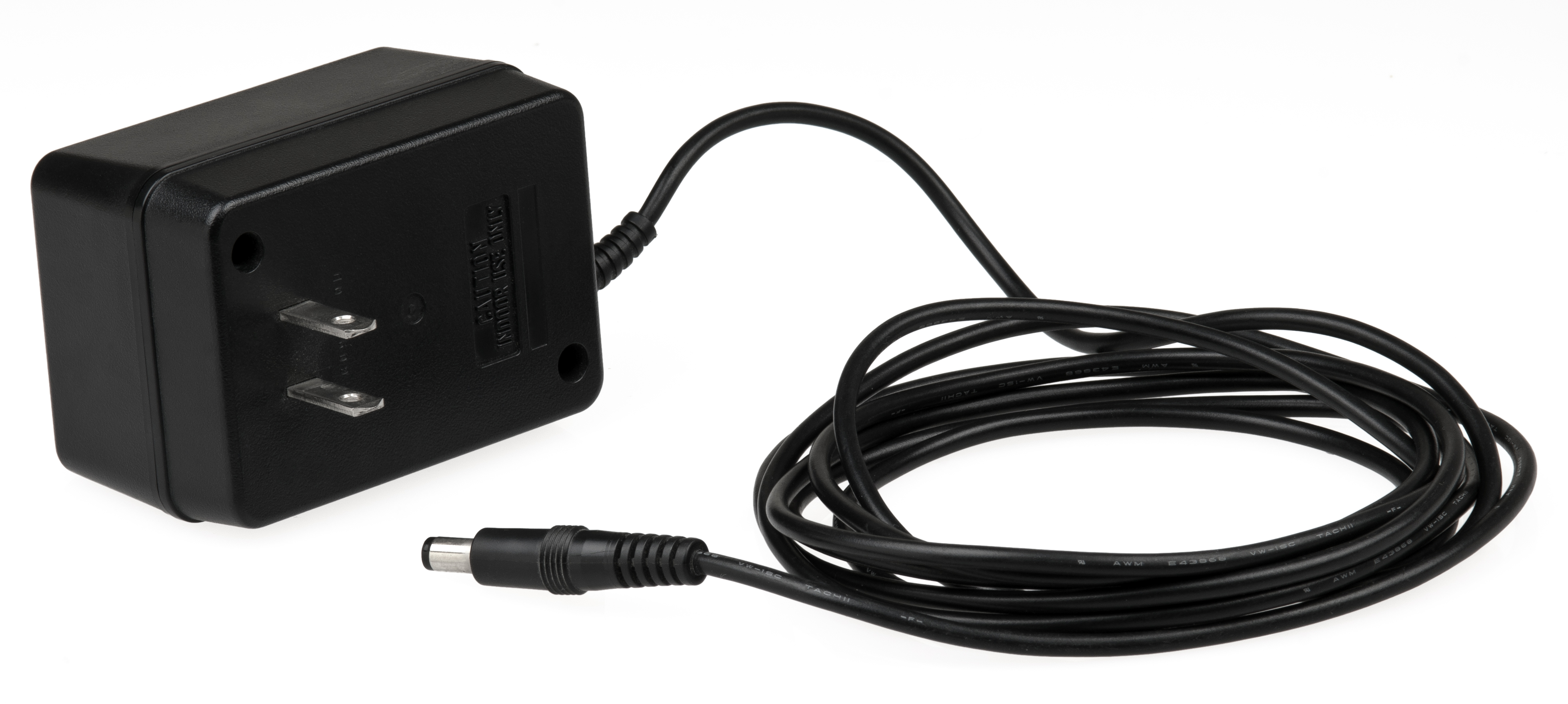
Your synth’s small and efficient filtered and regulated Dual Power Supply, from a simple AC adapter.
Check the 2.1 update!
Continue reading Mini Dual Power Supply